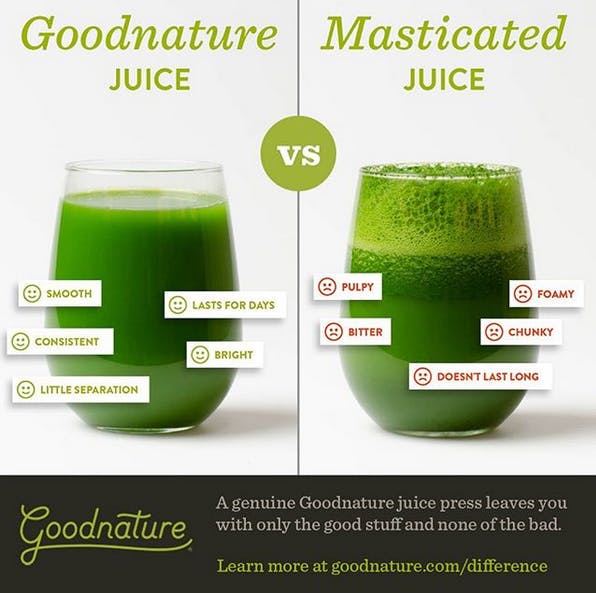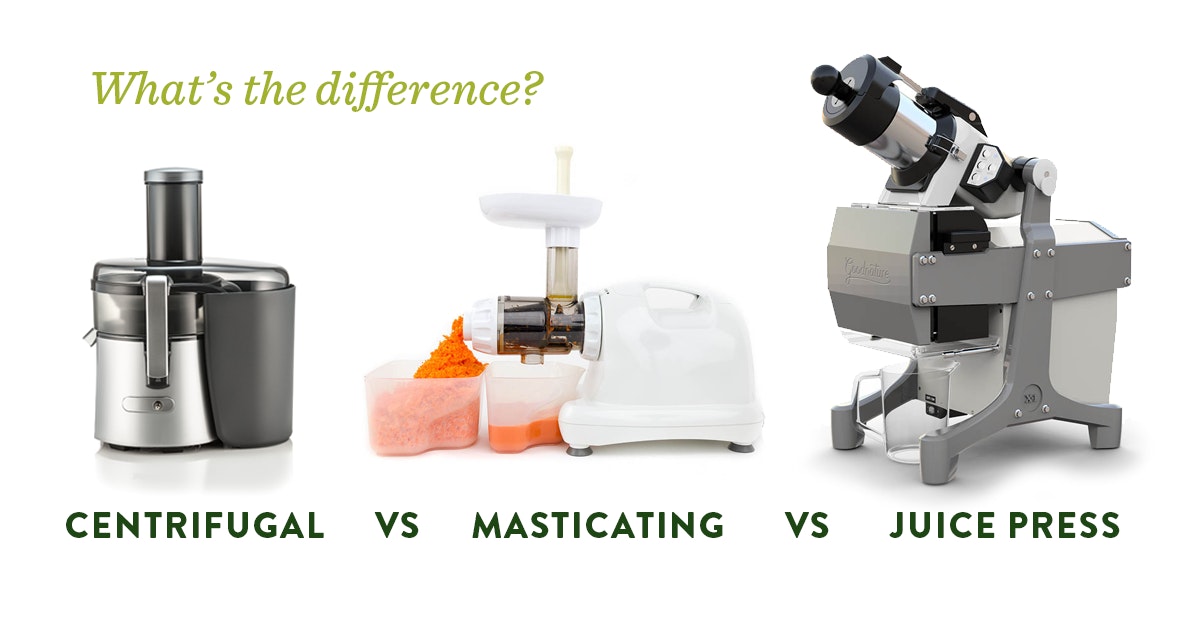Are you thinking of buying a juicer but wondering what type of juicer is right for you? Do you know the difference between a masticating and a centrifugal juicer? It’s important to understand the difference before you make your purchase. In this article, we’ll discuss the features of both types of juicers, how to tell which one you have and the pros and cons of each. With this information, you’ll be able to make an informed decision and choose a juicer that fits your needs.
To determine if your juicer is masticating or centrifugal, you need to look at the type of blade or auger your juicer uses. A masticating juicer has a single gear or auger that crushes and presses the produce to extract juice, while a centrifugal juicer has a blade that spins at high speeds to extract juice.
Step-by-Step Tutorial
- Unplug your juicer.
- Remove the juicer lid and blade or auger.
- Look at the blade or auger.
- A masticating juicer has a single gear or auger.
- A centrifugal juicer has a blade that spins at high speed.
Masticating vs Centrifugal Juicer Comparison
| Masticating | Centrifugal |
|---|---|
| Single gear or auger | Blade that spins at high speed |
| Crushes and presses produce | Grinds produce |
| Quieter | Noisier |
How Do I Know if My Juicer is Masticating or Centrifugal?
Juicing has become a popular way to get the essential nutrients from fruits and vegetables. There are two main types of juicers available to consumers: masticating and centrifugal. Knowing the difference between the two types of juicers is important when choosing the best one for your needs.
Masticating Juicers
Masticating juicers extract juice from fruits and vegetables using an auger-like system that literally chews or masticates the produce. This type of juicer operates at a low speed (typically 80 RPM or less), which prevents oxidation of the juice and preserves more of the nutrients. Masticating juicers also allow for more juice to be extracted from larger pieces of produce.
Masticating juicers are typically more expensive than centrifugal juicers and they tend to be larger and more complicated to use. But they are more efficient and can produce higher quality juice.
Centrifugal Juicers
Centrifugal juicers use blades to cut up the produce and then spin the pieces at high speeds to extract the juice. This type of juicer operates at a much higher speed (typically 1000 to 15,000 RPM) and can quickly produce a glass of juice.
Centrifugal juicers are typically less expensive than masticating juicers and they tend to be smaller and easier to use. But they can produce lower quality juice due to oxidation and the juice may not last as long.
How to Choose the Right Juicer
When choosing a juicer, it is important to consider your needs and budget. If you are looking for a quick and easy way to make juice, a centrifugal juicer may be the right choice. But if you are looking for a higher quality and longer lasting juice, a masticating juicer might be the better option.
Understanding Juicing Terms
When shopping for a juicer, it is important to understand some of the terms that are used. Some of the most common terms include: RPM (revolutions per minute), juice yield, pulp ejection and pulp container. Knowing what these terms mean will help you make an informed decision when selecting a juicer.
Juicer Maintenance and Cleaning
It is important to keep your juicer clean to ensure the best quality juice and to prevent any food-borne illnesses. Most juicers are easy to clean and require only a few minutes of your time. It is typically best to clean the juicer immediately after use to prevent the buildup of any residue.
Juicer Accessories
Some juicers come with a variety of accessories that can be used to make juicing more efficient and enjoyable. These accessories can include a juicing cone, strainer, filter and juicer cup. Knowing which accessories are compatible with your juicer will help you get the most out of your juicing experience.
Juicer Price Range
Juicers come in a variety of price ranges, from low-end models that cost less than $100 to high-end models that can cost up to $400 or more. Knowing your budget and the features you need will help you choose the best juicer for your needs.
Power Requirements
Most juicers require a power source to operate. It is important to check the power requirements of your juicer before you purchase it to ensure that it is compatible with your home’s power source.
Warranty and Customer Service
When shopping for a juicer, it is important to consider the warranty and customer service that is offered. Most reputable companies offer a warranty on their products and a customer service team that is available to answer any questions you may have.
Ease of Use
When choosing a juicer, it is important to consider the ease of use. Some juicers are easier to assemble and use than others, so it is important to read customer reviews and watch online tutorials to get an idea of how easy the juicer is to use.
Frequently Asked Questions
What is a Masticating Juicer?
A masticating juicer is a type of juicer that uses a single auger to slowly grind fruit and vegetables into juice. The auger, or teeth, slowly press the fruit and vegetables against a screen to extract the juice. This type of juicer usually produces more juice and less foam, as well as a higher nutritional value than a centrifugal juicer.
Masticating juicers are often more expensive than centrifugal juicers, but they are quieter, more efficient, and easier to clean. They are also better for making nut milks, baby food, and other types of purees.
What is a Centrifugal Juicer?
A centrifugal juicer is a type of juicer that uses a rapidly spinning blade to quickly grind fruit and vegetables into juice. The blade spins at a high speed, quickly grinding the fruit and vegetables against a mesh screen to extract the juice. This type of juicer usually produces less juice and more foam, as well as a lower nutritional value than a masticating juicer.
Centrifugal juicers are often less expensive than masticating juicers, but they are louder, less efficient, and more difficult to clean. They are also not as good for making nut milks, baby food, and other types of purees.
How Do I Know if My Juicer is Masticating or Centrifugal?
If you are unsure whether your juicer is a masticating or centrifugal type, the best way to find out is to look at the blade. A masticating juicer will have an auger or set of teeth that slowly grinds the fruit and vegetables. A centrifugal juicer will have a rapidly spinning blade that quickly grinds the fruit and vegetables.
You can also check the manufacturer’s website or user manual to find out more information about your juicer. This should tell you whether your juicer is masticating or centrifugal.
What Are the Benefits of a Masticating Juicer?
Masticating juicers have several benefits over centrifugal juicers. They are quieter, more efficient, and easier to clean. Masticating juicers also produce more juice and less foam, and the juice has a higher nutritional value. They are also better for making nut milks, baby food, and other types of purees.
However, masticating juicers are usually more expensive than centrifugal juicers, so it is important to weigh the pros and cons before purchasing one.
What Are the Benefits of a Centrifugal Juicer?
Centrifugal juicers have several benefits over masticating juicers. They are less expensive, and they are louder, less efficient, and more difficult to clean. Centrifugal juicers also usually produce less juice and more foam, and the juice has a lower nutritional value.
However, centrifugal juicers are not as good for making nut milks, baby food, and other types of purees. So, it is important to consider the pros and cons before purchasing one.
Centrifugal(fast) vs Masticating (slow) | Which Juicer is better? | Carib Sunsations
To summarize, if you are looking to purchase a juicer, it is important to understand the differences between masticating and centrifugal juicers. Masticating juicers are better for extracting juice from leafy greens and more fibrous fruits and vegetables, while centrifugal juicers are better for softer fruits and vegetables. The design and type of motor will indicate whether a juicer is masticating or centrifugal, so be sure to read the details of the product before you purchase. With the right information, you can choose the juicer that is best for you and your needs.




